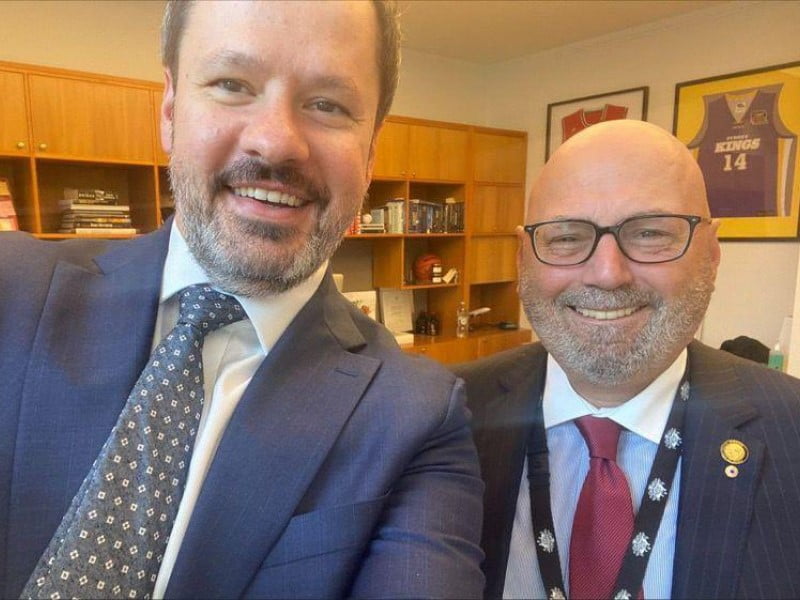Arthur Sinodinos is perhaps uniquely positioned among former politicians and public servants to identify specific threats and opportunities for Australia’s industrial base.
A former Australian ambassador to the United States, Mr Sinodinos had earlier spent a decade as chief of staff to Prime Minister John Howard, and served in Cabinet in Malcolm Turnbull’s second ministry, having been appointed to the Industry and Science portfolio.
In an age of AUKUS, heightened geostrategic competition, and shifting priorities in global economic thinking, this is a careers’ worth of experience that suits the times (to paraphrase John Howard).
In this episode of the Commercial Disco, Mr Sinodinos discusses his new role as a partner and chair of the Australian practice at The Asia Group and talks about the confluence of global forces that have put industrial policy back at the centre of government agendas around the world.
“All of a sudden, as Paul Keating would have said, every galah in the pet shop is talking about industrial policy,” Mr Sinodinos told the Commercial Disco.
“And in the US, industrial policy is no longer a dirty word. It’s become in some ways the term du jour. It basically describes what Biden Economics is all about. It describes what the Europeans were trying to do.
“And it actually locks into the whole geopolitical issues that we’re seeing emerge, particularly in this part of the world. “
And that’s the world in a nutshell and is much of the focus of work at The Asia Group; to analyse the US China relationship and the evolving legislation and trade rules that have been put in place, and further analysing the impact that this is having on traditional trade and investment relationship.
These forces have encouraged the development of new supply chains, perhaps the biggest development in the world today – right at the confluence of traditional economic approaches and industrial policy approaches.
If you are looking for a clear-eyed view of the US-Australia relationship, of the opportunities for Australia through the AUKUS agreements, and the likely impact of changes to the US’ International Traffic in Arms Regulations of the Defence Production Act, this interview with Mr Sinodinos is well worth listening to.

The reality is that Australia and the United States are being brought closer together by the strategic circumstances in the region, both in defence and security, he says, and more broadly in terms of diplomacy through the region.
That has an impact on the economic and trade engagement between the US and Australia, and then with the region.
“That’s the context. It’s creating a whole slew of new opportunities for Australia as a trusted ally and partner,” Mr Sinodinos said.
“If you look at AUKUS, for example, while that’s a Defence capability pact, [if it is] done properly with tech transfer and information sharing, it gives us an unrivalled access to the US technology industrial base,” he said.
“Along with the UK and Canada, this would put us in a position to help transform Australia’s own technology industrial base.”
He says there is a lot of interest from industry both in Australia and the US about how governments will bring the various elements of AUKUS together, not just in relation to the delivery of submarines, but the AUKUS Pillar II critical technologies component as well.
“So the world is changing around us very quickly. And it’s giving us opportunities that I wouldn’t have expected a few years ago, because of this confluence between economics and national security,” Mr Sinodinos said.
“And then you overlay the clean energy transition, and the critical minerals part of that as well, which is important for electric vehicles, critical minerals, also important for defence purposes, another area where Western countries want to reduce their dependence on China, and you have a slew of these new opportunities opening up.”
Do you know more? Contact James Riley via Email.

